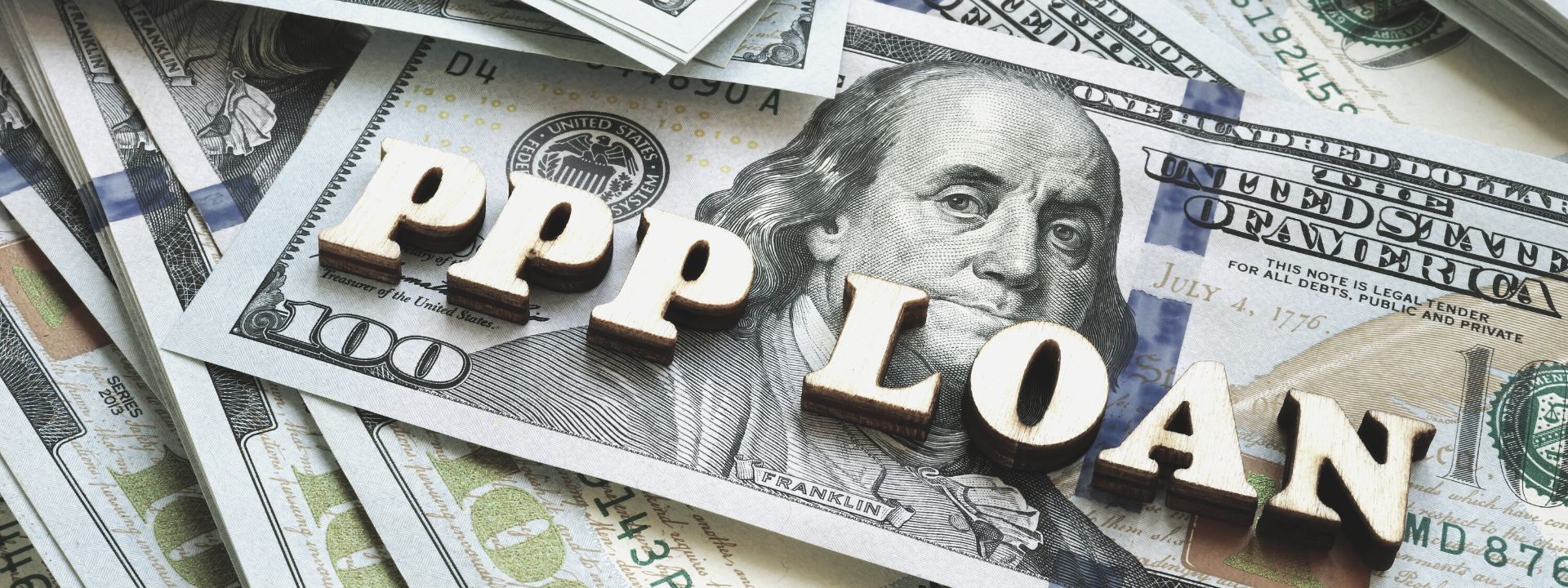At a Glance
Main TakeawayThe Paycheck Protection Program (PPP) was established by Congress to provide aid for businesses, self-employed workers, sole proprietors, and nonprofit organizations to keep employees on payroll while these businesses may have been shut down due to the COVID-19 pandemic. The PPP loans, like many credits and incentives created during 2020, allowed companies to continue paying their workers and stay in business through the pandemic with the additional liquidity provided by the PPP funds. However, the PPP loan program was not without flaws. Some economists reported that the PPP loans did not save as many jobs as promised and helped businesses that were not at risk of closure. Recently, the Chief Counsel’s office of the IRS stated that any improperly forgiven PPP loans are now taxable income.Next StepFamiliarize yourself with information in the new IRS memorandum regarding PPP loans and taxes, and speak to an accounting professional to ensure you comply with any new IRS requirements.
Eligibility for a Paycheck Protection Program Loan
PPP loans were created to aid small businesses facing hardship because of the COVID-19 pandemic. It allowed eligible borrowers to apply for initially low-interest loans to cover eligible business costs such as rent, utilities, mortgage interest, and payroll costs. It helped businesses continue to pay employee wages and keep operating. For borrowers, a loan was 2.5 times the applicant’s average monthly payroll costs for 2019 or 2020, with an initial cap of $10 million for PPP round 1 and $2 million for PPP round 2. In qualifying instances, an applicant could receive a second loan, usually equal to the first. The deadline to apply for a PPP loan was May 31, 2021. Eligible recipients for a PPP loan were:- Small businesses, eligible tax-exempt entities, eligible self-employed workers, independent contractors, or sole proprietors
- In business on or before February 15, 2020
- Sole proprietors, self-employed workers, independent contractors, or businesses that paid employees or contractors for their work
Paycheck Protection Program Loan Forgiveness
Congress introduced PPP loan forgiveness as part of the Coronavirus Aid, Relief, and Economic Security (CARES) Act. While the U.S. Small Business Administration (SBA) has provided detailed information for business owners regarding PPP forgiveness, the basic criteria for full or partial forgiveness are as follows:- The loan recipient was eligible for a PPP loan
- The recipient paid qualified expenses like rent or mortgage, utilities, or payroll costs with the loan’s proceeds during the applicable covered period
- The recipient applied for loan forgiveness, stating they were eligible for a PPP loan, used the money for qualified expenses, certified that their financial information was accurate, and met other qualifications set by the SBA
Improperly Forgiven PPP Loans
The IRS confirmed that improperly forgiven PPP loans will be considered taxable income. The memorandum advises PPP borrowers whose loans were improperly forgiven to report the forgiven amount on their taxes through an initial or amended return. The IRS offers an example of improper PPP loan forgiveness to warn taxpayers of the requirement to report. The memorandum references a taxpayer that applied for PPP proceeds in 2020. The business owner did not use the funds for eligible expenses, but the filed loan application stated that the business did. The SBA forgave the PPP loan based on false information provided during the application process. Due to the taxpayer’s misrepresentation and omissions, the loan should not have been eligible for forgiveness and needed to be reported as income. The IRS warns that in addition to tax liabilities created by improperly forgiven PPP loans, the SBA can also pursue loan repayment due to misuse of the proceeds for any taxpayer who benefited from leaving out or falsifying information in their forgiveness application.What to Do if You Believe Your PPP Loan Was Mistakenly Forgiven
It may be challenging for a private business owner to keep up with ever-changing requirements and paperwork. Many business owners may have had their PPP loans improperly forgiven without being aware of specific criteria disqualifying them from forgiveness. The IRS memorandum encourages business owners to review their PPP loan forgiveness application and supporting documents to ensure no mistakes were made. If, upon review, you discover a portion of your loan was mistakenly forgiven, you must work with a tax professional to file the correct documents and meet your tax liability. You can review your application if you believe your loan was improperly forgiven. Check for the following items:- Incorrect information, typos, or errors, such as a misplaced comma, can turn $12,000 into $120,000 and possibly leave you owing taxes on much more than you thought.
- Funds were used for eligible expenses such as payroll, rent, interest, utilities, or a mortgage. A portion of the PPP proceeds could be taxable if not used to pay for eligible expenses.
- Loan application filed by a poorly qualified preparer. If the application was filled out incorrectly by the preparer, you might have mistakenly received forgiveness. It is important to keep documentation providing support for the application filing itself. Your preparer should have all documentation supporting qualified expenses.


